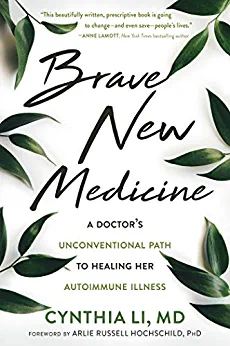Discover what’s been done in the field of traumatic stress, new perspectives on the nature and experience of trauma, and gain a deeper understanding of trauma’s far-reaching psychological and physical consequences.
Linda Curran – Treating Complex Trauma: Beyond Competency
Â
Intensify and Expand Your Trauma Treatment Capabilities
You know that building the skills to treat trauma and complex PTSD takes ongoing dedication to the craft and science of therapy… Because trauma treatment is always evolving.
That’s why I’ve interviewed world-renowned trauma experts and collected their insights and in-session demonstrations in this all new online certification training course…
You’ll get insight into proven trauma processing modalities from the developers of these techniques. You’ll learn about:
Internal Family Systems (IFS) Therapy from developer Dr. Richard Schwartz, and Dr. Frank Anderson, vice chair and director of the Foundation for Self Leadership
Gestalt Therapy from David Henrich, who has studied for more than 30 years, and Dr. Mary Lou Schack, one of the founders of the Gestalt Therapy Institute of Philadelphia (GTIP)
Eye Movement Desensitization and Reprocessing (EMDR) from Linda Curran, an expert in the field
Mindfulness-Based Stress Reduction from pioneering teacher and leader in the clinical application of mindfulness meditation Elana Rosenbaum
The Adverse Childhood Experiences (ACE) Study from Dr. Vincent Felitti, co-principal investigator of the study
Brainspotting, from the developer of this internationally acclaimed method Dr. David Grand
Somatic Experiencing from its developer Dr. Peter Levine
Polyvagal Theory from the founder Dr. Stephen Porges
Emotionally Focused Couples and Family Therapy (EFT) from the founder Sue Johnson
Compassionate Inquiry for treating addiction, ADHD and more from developer Dr. Gabor Maté
Dialectical Behavior Therapy (DBT) from Dr. Lane Pederson, who also founded Dialectical Behavior Therapy National Certification and Accreditation Association (DBTNCAA), the first active organization to certify DBT providers and accredits DBT programs
Prolonged Exposure Therapy (PE) from its founder Dr. Edna Foa
Cognitive-Behavioral Therapy (CBT) from Dr. Donald Meichenbaum, one of its founders
Discover what’s been done in the field of traumatic stress, new perspectives on the nature and experience of trauma, and gain a deeper understanding of trauma’s far-reaching psychological and physical consequences.
The demonstrations showing these experts’ skills in action help speed the learning and application of their proven processes to your own practice…
So you can adapt their experience to create theoretically sound principles that improve your clinical outcomes…
And help your clients find lasting relief from the anger, nightmares, shame, anxiety, depression, and other debilitating symptoms of trauma and complex PTSD.
Sincerely,
Linda Curran, BCPC, LPC, CACD, CCDPD
P.S. When you complete this course, you’ll be immediately eligible to become a Certified Clinical Trauma Professional (CCTP)…
Giving you the opportunity to stand out from the crowd and let clients and colleagues know that you’ve invested the time and effort needed to provide treatment at the highest level. AND your first year of certification is FREE (a $99.99 value)!
COURSE OBJECTIVES
Formulate how the mammalian arousal cycle and stress response informs current trauma treatment.
Determine the basics of neurodevelopment in early stages of life and theorize how attachment deficits, left unaddressed, continue to impact adults throughout the lifespan.
Employ two methods of grounding a dissociated client in session informed by the Polyvagal theory.
Appraise the ACE study and apply its findings to clinical diagnosis and treatment of developmental and attachment trauma.
Appraise the diagnostic criteria and clinical presentation of Complex PTSD.
Role-play a compassionate approach to self-destructive behaviors with clients in-session.
Assess the importance of setting firm boundaries in the therapeutic relationship as it relates to setting boundaries can improve treatment outcomes.
Debate the current theoretical basis for addiction treatment (i.e. addiction is a choice or a disease) compared to the biopsychosocial theory of addiction.
Perform three mindfulness practices; include any clinical modifications for use with a traumatized population.
Propose how somatic interventions enable clients to extinguish conditioned responses to procedural memories.
Develop an argument for AND against the use of medications with traumatized clients.
Appraise Shapiro’s 8-Phase Model of EMDR. Define and defend the modifications made to the protocol when using EMDR with clients with complex trauma.
Determine the development of “parts†(a component of IFS therapy) that result from trauma and how their function can be used as a resource for clients.
Assess the theory and practice of Gestalt Therapy beyond the archetypal empty chair technique that can be incorporated into trauma treatment planning.
And many more!
Get immediately download Linda Curran – Treating Complex Trauma: Beyond Competency
COURSE MODULES
Biological Nature of Trauma
Biological nature of trauma
Triune brain
Brain/body integration: understanding the brain/body feedback loop
Mechanisms of trauma
Principles informing state-of-the-art clinical interventions
Treatment implications
Polyvagal Theory, with Stephen Porges, PhD
Long-term memory
Implicit memory
Explicit memory
DSM-5 trauma diagnoses
Single-incident PTSD
Acute Stress Disorder
PTSD subtypes
Trauma Sequelae: chronology of symptom clusters post-single incident PTSD
Trauma symptoms characteristic of early childhood trauma, with Robert Scaer, MD
Adverse Childhood Experiences, with Vincent Felitti, MD
Background
Long-term impact on individuals
Correlation with addiction
Public health implications
Attachment, with Dr. Bessel van der Kolk, Dr. Diane Poole Heller, and Dr. Dan Siegel
Neurodevelopment
Attachment essentials
Attachment security and strategies
Developmental trauma disorder
Definition of Trauma and Trauma Conditions
Trauma: working definition
Conditions resulting from trauma
PTS
Single incident PTSD
Complex PTSD
Borderline Personality Disorder
BPD
Stigma
DSM criteria
Developmental/attachment trauma
BPD and CPTSD
Parallels
Distinction
CPTSD
Diagnosis
DSM-5 and ICD-11 specifications
Distinct from PTSD (single incident)
Maladaptive behaviors
Function of addictions and self-injury in individuals with trauma
Treatment principles and strategies
Dissociation, with Robert Scaer, MD
PTSD and CPTSD: “dissociative disordersâ€
Correlation between childhood abuse and re-victimization
Treatment implications
Addiction
Myths
Nature of addiction
Treatment implications
Trauma and addiction, with Gabor Maté, MD
12-step programs and the rehabilitation industry
Stage Model of Trauma Therapy
Stage model of trauma therapy
Janet’s tri-phasic model of trauma therapy
Dual awareness, with Babette Rothschild, MSW, LCSW
History taking
Mindfulness and awareness practices, with Dr. Jim Hopper; Elana Rosenbaum, MS, LICSW; Belleruth Naparstek, LISW, BCD; and Amy Weintraub, MFA, ERYT-500
Mindfulness
Mindfulness-based stress reduction (MSBR)
Program breakdown
In-session body scan demonstration
Guided imagery
Mindfulness/bodyfulness
Yoga
Pacing yoga practice for traumatized population
Effects of trauma on musculoskeletal system
Use of yoga mudras for self-soothing
In-session with Amy Weintraub
Dialectical behavioral therapy with Lane Pederson, PsyD, LP, DBTC
Discussion
Theory and development
Systematic implication
DBT skills training and tools
In-session with Lane Pederson
Trauma and medication with Frank Anderson, MD
The importance of client agency
Employing IFS when prescribing medications
Somatic experiencing with Peter Levine, PhD
In-session with Peter Levine
Theory and practice
Somatic Therapy with Babette Rothschild, MSW, LCSW
In-session with Babette Rothschild
Trauma Processing Modalities
Cognitive behavioral therapy with Donald Meichenbaum, PhD
Prolonged exposure therapy with Edna Foa, PhD
Theory development
Applicability
Sensorimotor psychotherapy with Janina Fisher, PhD
Psychoeducation in trauma therapy – utilizing cognitive override
Resourcing clients
Body-oriented and somatic interventions
Eye-movement desensitization and reprocessing (EMDR)
Theory with field leaders
Shapiros 8-phase model
Clinical modifications for complex trauma
In-session with Linda Curran
Internal family systems with Richard Schwartz, PhD
Theory and applicability
In-session with Frank Anderson
Theory development and practice
In-session with Richard Schwartz
Gestalt therapy
Beyond the empty chair technique
Verbal narrative vs. body narrative
In-session with Mary Lou Schack, PhD
In-session with David Henrich, LCSW, BCD
When you register today, you’ll receive three FREE bonuses (a $154.97 value!)
Trauma Competency: A Clinician’s Guide eBook ($24.99 value)
Recommended for all clinicians working with trauma, this book is a clear and concise, reader-friendly illumination of the HOW and the WHY of trauma treatment.
Unique in its approach, Linda Curran not only defines and explains the current trauma paradigm-relevant theories and current neuroscience, but demonstrates, step-by-step, its in-session clinical utility and applicability.
101 Trauma-Informed Interventions: Activities, Exercises and Assignments to Move the Client and Therapy Forward eBook ($29.99 value)
This workbook pulls together a wide array of trauma treatments into one concise resource. Equally useful in both group and individual settings, these interventions provide hope and healing for the client, and expand and solidify your expertise.
The book also includes a link to all reproducible worksheets you can print and use with clients right away!
Your Certification Application Fee is FREE ($99.99 value)
Certification made simple! Register today and pay no additional fees to complete your Certified Clinical Trauma Professional (CCTP-Level 1) certification.
Benefits of Certification
Clinical expertise: Show clients and colleagues your practice is based on leading-edge research in this complex area of mental health.
Client trust: Certification shows your clients you’re dedicated to providing the best care possible. It reveals your professional ability to take on challenging clients and succeed!
Documentation of knowledge: Certification is both a professional and personal accomplishment. It’s an unbiased barometer of your training and dedication to your practice.
Improved insurance reimbursements: Receive more favorable consideration from insurance companies and managed care panels.
Professional recognition: Set yourself apart from the thousands of clinicians relying on outdated methods to treat their clients. Increase your opportunities for career advancement and client referrals.
MEET YOUR EXPERTS
Linda Curran, BCPC, LPC, CACD, CCDPD, is president of Integrative Trauma Treatment, LLC, in Havertown, PA. She provides clients an integrative approach to trauma, and treats PTSD in adolescent and adult populations, including clients with eating disorders, sexual trauma, and self-injury. An international speaker on the treatment of trauma, Linda has developed, produced, and presents multi-media workshops on all aspects of psychological trauma.
Linda is the author of the best-selling Trauma Competency: A Clinician’s Guide (PESI, 2010) and 101 Trauma-Informed Interventions: Activities, Exercises and Assignments to Move the Client and Therapy Forward (PESI, 2013). She is the producer of the best-selling Interview Trauma DVD series in which she collaborated with the world’s leaders in trauma: Bessel van der Kolk, MD; Peter Levine, PhD; Babette Rothschild, MSW, LCSW; Stephen Porges, PhD; Janina Fisher, PhD; and many more.
Speaker Disclosures:
Financial: Linda Curran maintains a private practice. She receives a speaking honorarium from PESI, Inc.
Nonfinancial: Linda Curran has no relevant nonfinancial relationship to disclose.







